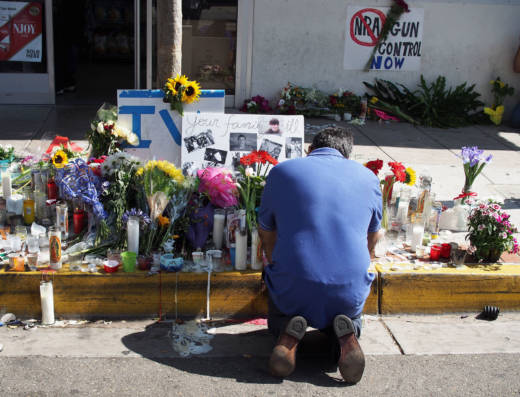Modeled after domestic violence restraining orders, critics see the laws as a violation of due process rights, because they simply require a judge to make a determination. But supporters say they are an important tool to protect people -- including gun owners -- who might harm themselves or others.
"Studies show these laws are incredibly impactful in preventing suicide," said Allison Anderman, a managing attorney at the Giffords Law Center to Prevent Gun Violence, which helped write California's law. "The most interesting way they've been used is to disarm people on the terrorist watch list."
More states are exploring some sort of similar law in the wake of mass shootings like the high school massacre in Parkland, Florida. Lawmakers there recently passed what's known as a "red flag" law that allows law enforcement -- but not family members -- to petition for a gun to be taken away from someone.
But Anderson said the Giffords Law Center believes that the law in California, along with similar ones in Washington and Oregon, is the most effective because family members are the most likely to know when someone is unstable. According to the law center, 80 percent of people considering suicide let someone know their intention ahead of time and 38 of the 62 mass shooters in the last 20 years displayed some sign of mental health problems before the killings.
Questions have arisen about whether the law could have made a difference in the YouTube campus shooting in San Bruno this week, although it doesn't appear the restraining order would have been an option in that case: The family of alleged YouTube shooter Nasim Aghdam said they didn't know she had a gun.
Still, Aghdam's home county of San Diego has been among the most aggressive in using the restraining orders. They have secured at least 18 over the two-year period covered by the DOJ statistics.
"Our federal government is inexcusably ignoring the growing problem of gun violence in our schools and communities. The city of San Diego will not tolerate federal inaction," City Attorney Mara Elliott said in a February statement touting the city's success with the orders.
"We are doing everything in our power to respond to this epidemic of senseless killing by removing guns from the hands of unstable and irresponsible gun owners."
California's law was passed in the months following a shooting in May 2014 that killed seven people -- including the gunman -- near UC Santa Barbara. That county has also been successful at obtaining gun violence restraining orders: 21 were issued there in 2016 and 2017.
The NRA and other gun rights groups have generally opposed these types of laws, saying they violate the due process rights of people who have not been charged or convicted with a crime, and that any confiscation of firearms should come with mental health treatment.

